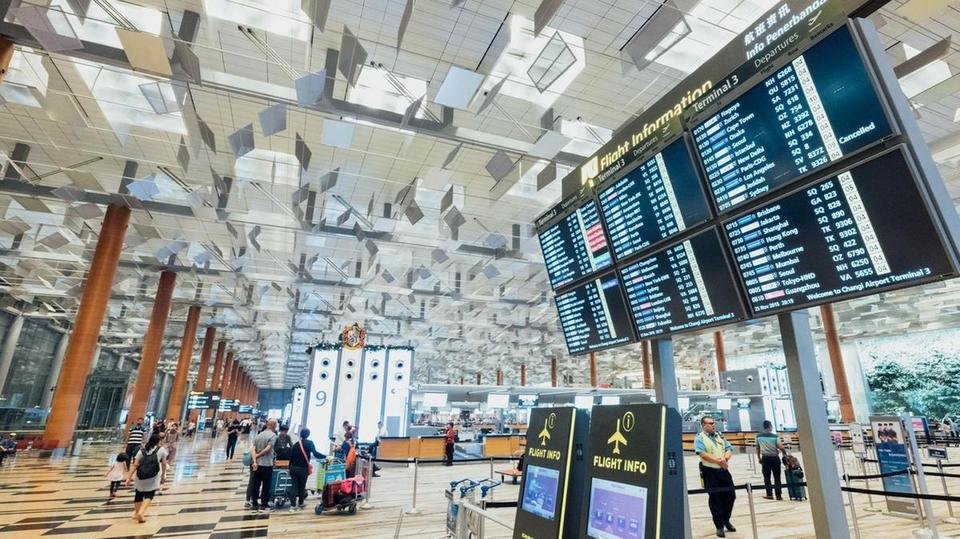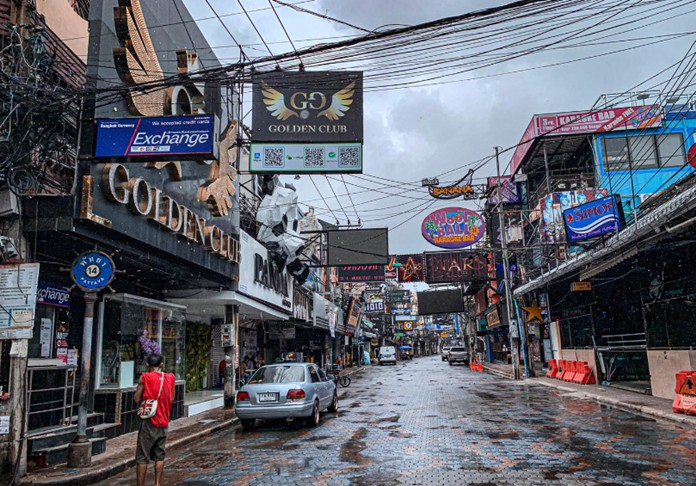
Lots of optimists still believe that once the pandemic is conquered – assuming that happens in our lifetimes – Pattaya will get back to operating its lively bars, sexy clubs and soapy massages. All for the benefit of we westerners. Yet there are three big reasons why that simply won’t happen.
Firstly, the traditional vacationers to Pattaya from Europe, Australia and the United States have been declining in numbers for many years. For example, according to government figures, the number of Brits arriving in the country has halved in the last 10 years. The reasons are likely complex, but surely include steeply rising prices here, alternatives to Pattaya nightlife in Eastern Europe and alienating/time-consuming bureaucracies such as the TM30 reporting system (now largely abandoned) which initially fined luckless holidaymakers if their Thai host did not report their arrival. The marketing damage, some say, was very extensive.
Covid-19 is adding another factor in the rise in airfares. According to Skytrax, Airbus’ airline-data base, the price of a long-haul economy-class ticket has risen 34 percent in the last 12 months. Most flights into Thailand are currently semi-commercial with passengers mostly Thais returning home and a smaller number of foreigners who have managed to secure a certificate of entry from their local Thai embassy. Some pundits point to the decline in international oil prices, but jet fuel amounts to only 20-25 percent of an airline’s operating expenses.

All flashing indicators post-coronavirus are that airlines will significantly cut back on available capacity by reducing the number of flights and routes to increase the load factor. This will increase revenue only by raising ticket prices, especially on long haul routes. In other words, the long-established decline in traditional tourists markets to Pattaya in particular is not going to reverse itself. Vacation trips to Thailand are also going to increase in price if travel insurance becomes compulsory and some version of a health passport is eventually required.
Secondly, the expat population of Pattaya is also changing fast. Thus, many fun-loving European retirees, married or not, are now in their 70s and older. As they die off, they are not being replaced by others of the same ilk, but by younger and richer expats who are being actively encouraged by the Thai government. There are now lawful ways to work in Thailand without a traditional work permit, whilst the government is attempting to lure foreign investors by promises of residency if they buy condominiums or sponsor big-time commercial enterprises. Of course, many of the new generation of expats (often with family members benefitting from preferential immigration requirements) are from China or Southeast Asia rather than from Leeds or Doncaster.

Thirdly, it is now official Pattaya policy at city hall to reduce the reliance on tourism by 60 percent by 2025, an aspiration heartily endorsed by government spokespersons. Pattaya’s proximity to the much underrated Eastern Economic Corridor (EEC) means that she is favoured by investors with already more than 1.5 trillion baht going into airport improvements, new auto-routes, deep sea ports and hi-speed trains. Not to mention a Pattaya-city tram service and a much bigger cruise terminal. Meanwhile, the government is pumping 775 million baht into Pattaya infrastructure improvements at Koh Larn and Naklua town. They do not remotely resemble the deserted Walking Street or the customer-desperate Sexy Soi Six.
There is no question that post pandemic Pattaya (or neo-Pattaya as the local authorities now prefer) will be a powerful vacation and business resort interwoven with the ever-expanding EEC. Europeans, Australians and Americans will increasingly be marginalized – over the years – as Pattaya assumes a new Asian identity. Of course, the human commodity of sex will continue to be bought and sold. But it will become a seller’s market with far fewer seedy outlets desperate for customers. If horizontal leisure pursuits are your thing, expect to pay a lot more. In due course that is.




